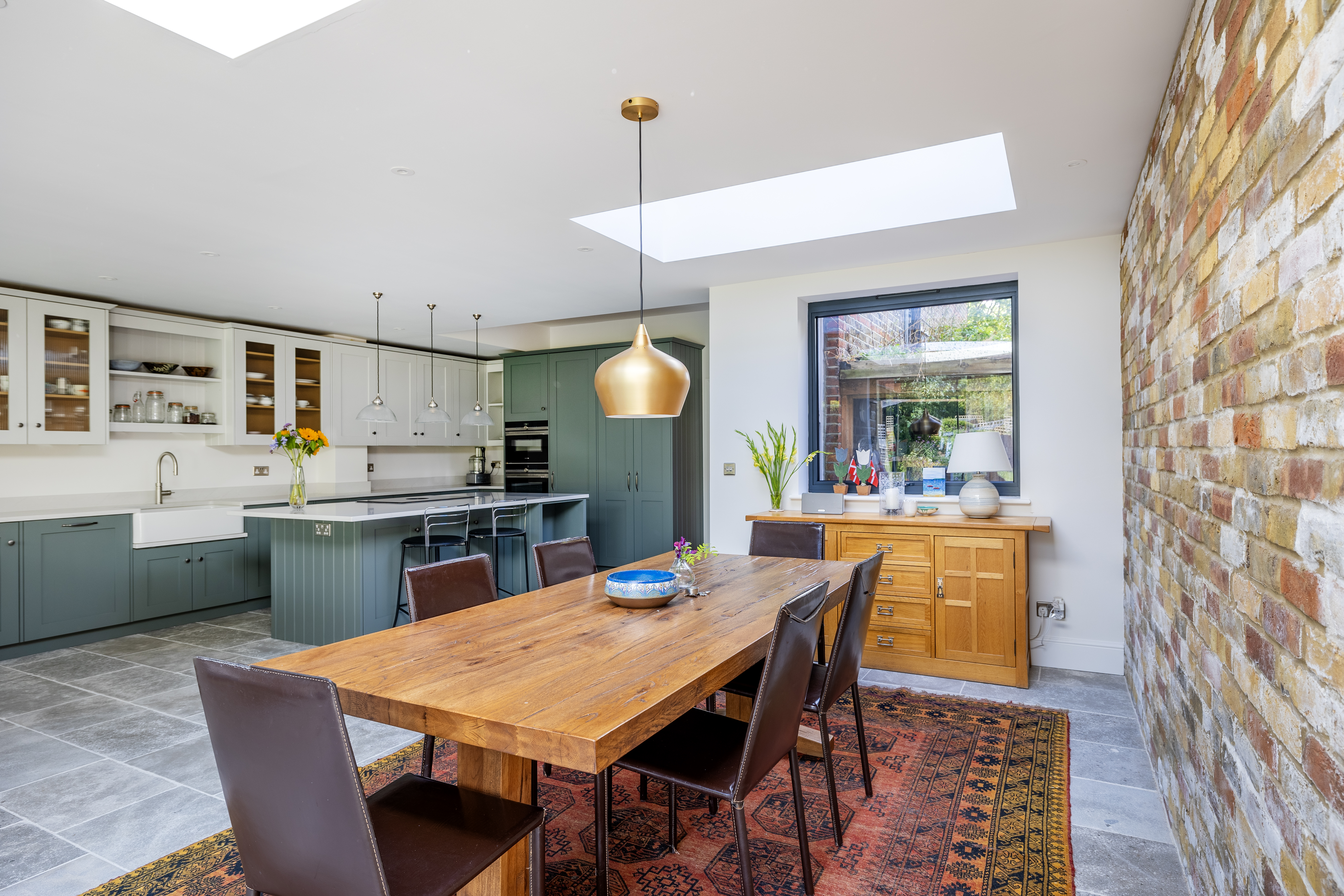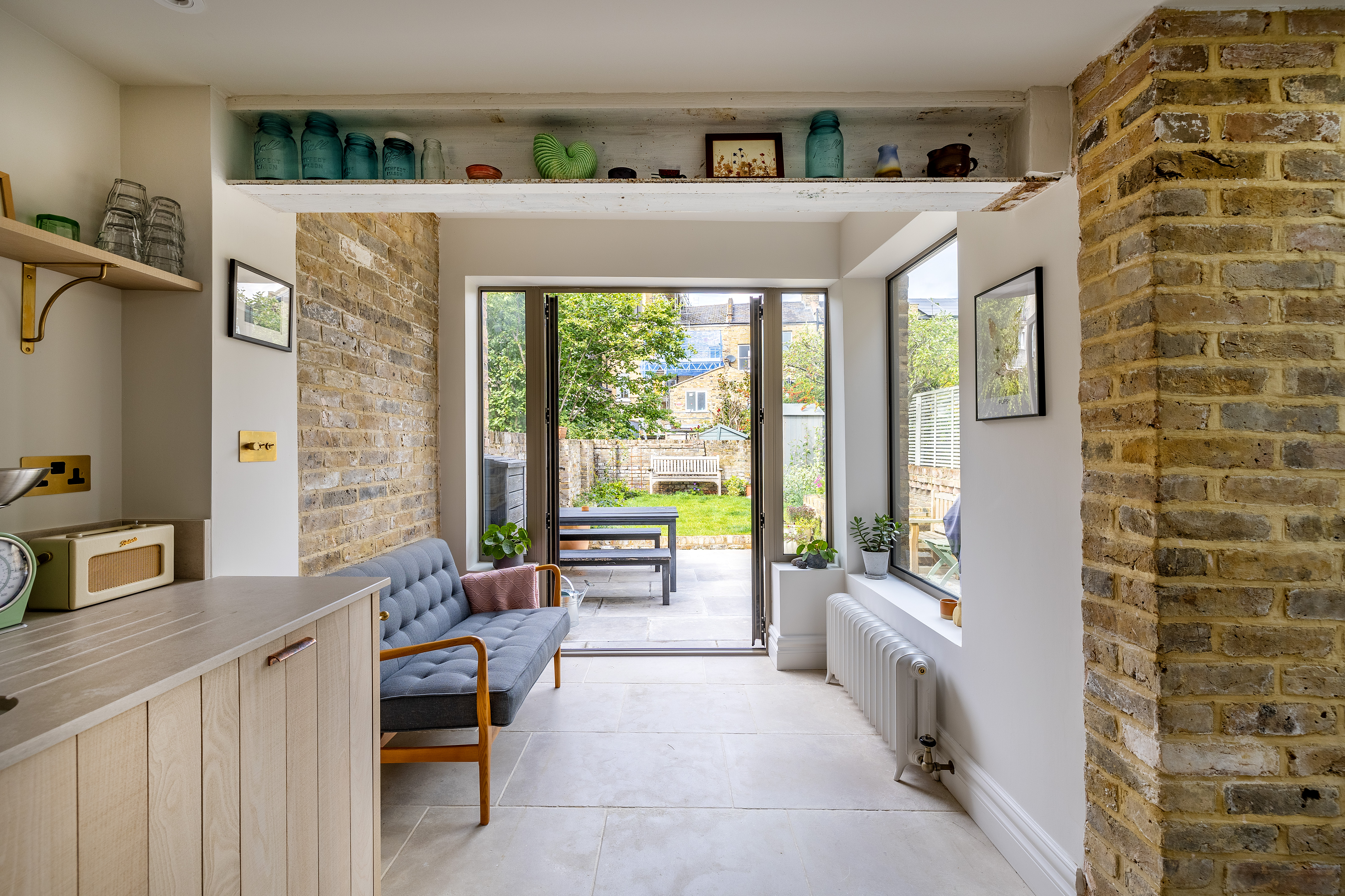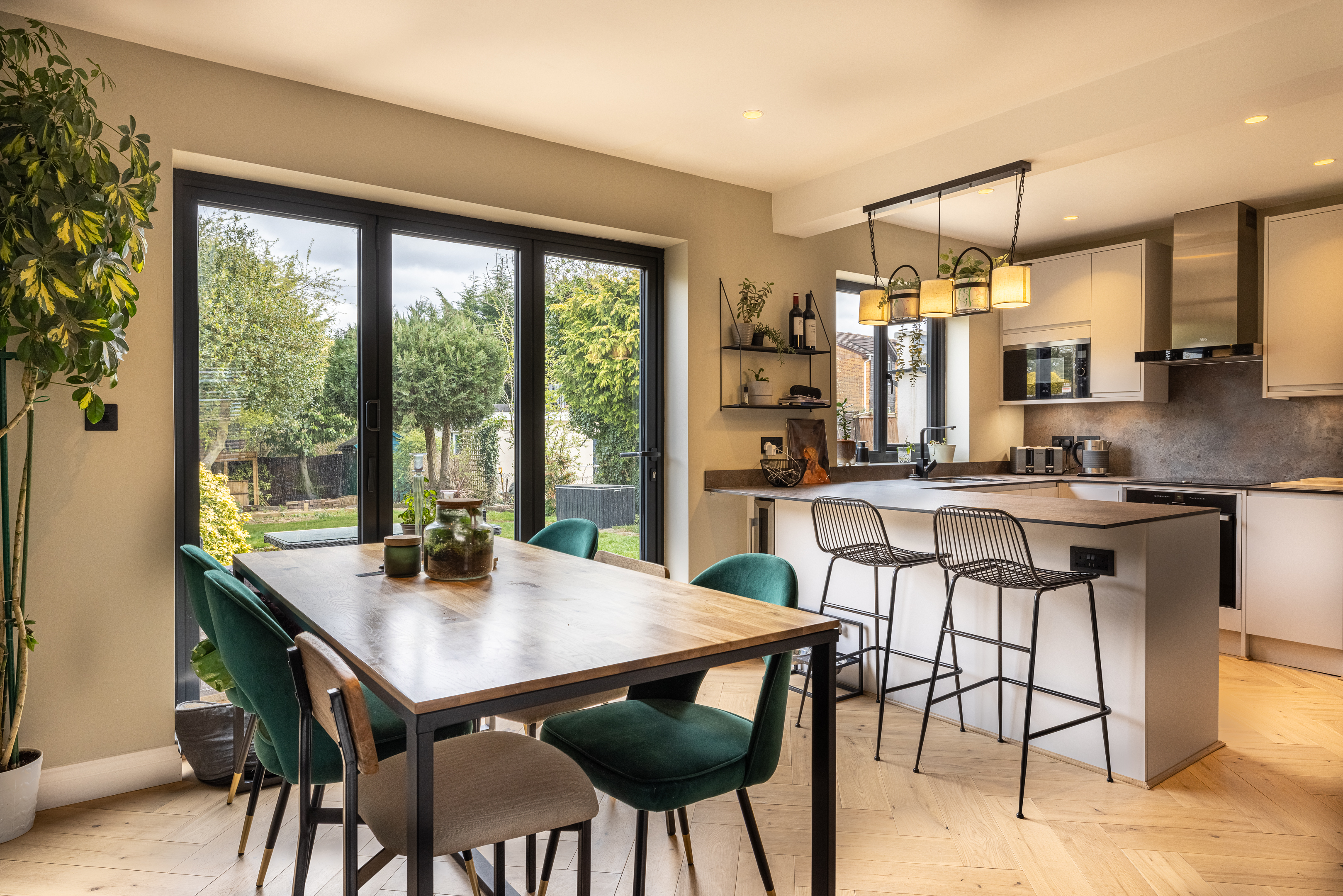Insurance Coverage for Your Home Extension Project
- 01-11-23
- 5 min read
- Blog
When you decide to add an extension to your home, you are essentially changing the terms initially agreed upon when you first acquired your home insurance.
In many cases, you’ll need specialist home extension and renovation insurance, either arranged through your existing insurer or through another. An insurance broker’s assistance can be invaluable here, especially if your project is relatively complex.
Sometimes, your current insurance will cover you to a certain amount, but the extent of coverage varies.
This article explores how building an extension can affect your home insurance, the necessary steps to take, and the importance of staying covered during and after the project.
Adding an extension means more than just altering the physical structure of your home – it also increases the level of risk associated with your property.
This heightened risk makes it more probable that you might need to file a claim, so standard home insurance policies may no longer be adequate.
While some home insurance does cover modifications and renovations, there are limits, typically:
Burst pipes and damaged infrastructure
Damage caused by altering the structure of the home
Damage from an open roof
Fire
Property damage caused by any negligence of the builder
Theft of equipment or materials
Weather damage/storms
Works in excess of £25,000 (this varies – some insurers cover up to £75,000)
When you extend or renovate, you subject your home to new risks, including:
Structural Risks: The process of building an extension often involves making significant changes to the existing structure of your home, such as knocking down walls.
Security Risks: An ongoing construction project can make your home an easy target for intruders, which insurance has to cover.
Legal Risks: Legal risks primarily relate to poor or non-existent contracts with builders and suppliers and disputes with neighbours and authorities. Insurance can cover these potentially expensive and unpredictable costs.
Unoccupancy: If you’re not in your house while it’s being extended, that ramps up the security risks your main home is extended to. Standard home insurance cover might not apply if the property goes unoccupied for long periods.
The first thing to do is communicate with your existing home insurance provider.
Prompt Notification is Key: Before beginning construction work, inform your insurance provider of your plans. Failure to do this can result in your insurance policy being invalidated.
Major Works vs. Cosmetic Changes: While cosmetic changes like painting and decorating do not typically require notification, larger projects such as extensions, loft conversions, and significant structural changes certainly do. Your insurance provider needs to be in the loop from planning to completion.
Re-evaluating Your Coverage: Once the extension is complete, your insurance provider can assist you in updating your policy to reflect the new rebuild value of your home, ensuring that you are adequately covered moving forward.
Your current insurer might be able to offer you specialist insurance for extensions.

Above: Your newly extended space will require more insurance, but differences in cost are likely non-substantial.
Do not rely solely on your builder’s insurance. While most builders are insured, their coverage may not fully protect your property and the ongoing work.
For example, the builders should have public liability insurance to protect themselves if a member of the public is injured from their work or actions, but not if something related to your own property injures somebody.
When you purchase extension and renovation insurance, this should come with protection for damage or harm inflicted by your property – such as a tile falling off and injuring somebody.
As Andrew Gibbons, managing director of insurance broker Mason Owen, explains to This is Money, “Public liability will cover the liability of the builder in managing the contract site while it is under their control, rather than paying for damage to the property as it is being worked on. The customer would also have to prove negligence, which can be difficult in a building scenario. Normally, insuring the existing structure is the responsibility of the property owner.”
In short, it’s highly advisable to consider specialist extension and renovation insurance for your home extension or loft conversion project.
Speak to your architect and/or builder to see what they recommend for similar projects to yours – there’s no harm in gathering every piece of advice you can.
Your insurance should cover most of the following:
One of the pivotal benefits of extension and home renovation insurance is the coverage it provides for any damage to the existing structure of your property.
Construction work, by nature, carries risks, and unexpected issues such as structural damages can arise.
This is particularly relevant to projects that involve considerable structural changes, such as knocking through and changing walls or altering foundations.
Standard home insurance policies typically do not cover building materials and tools left on-site. Separate cover for theft of these items, as well as any other contents, may be necessary.
Check with your insurer to see if they offer this coverage or if it can be included in a specialist home extension and renovation insurance policy.
Public liability insurance safeguards you against legal and medical costs that may arise if someone is injured or their property is damaged during the building work.
For example, if a roof tile were to dislodge and hit a passerby or their vehicle, this coverage would provide protection.
Your personal belongings are not left out of the equation. Contents insurance ensures that your possessions are covered in the event of damage or loss due to risks such as theft, fire, or flooding.
This means you won’t be left out of pocket even if the unexpected happens.
Malicious damage coverage offers a safety net if your property or contents are vandalised during renovation.
Construction sites can sometimes attract unwanted attention, and this aspect of your insurance ensures you’re protected against such acts of vandalism.
Homes under construction are prime targets for thieves, owing to the expensive equipment and materials often left on site.
Insurance coverage for theft of building materials and tools ensures that you are not left bearing the financial burden of replacing any of these items.
Major renovations can involve extensive structural work, sometimes increasing the risk of fire, earthquake or explosions. This would be rare for most conventional home renovation projects.
Your extension and home renovation insurance policy ensures that damage caused by such catastrophic events is covered, offering significant financial protection.
If the scale of the renovation means that you have to vacate your property for an extended period, typically more than 30 days, extension and home renovation insurance ensures that your home remains covered even when unoccupied.
Construction projects can sometimes lead to disputes, whether it’s with contractors, neighbours, or other third parties.
Legal expenses coverage provides a financial safety net for such scenarios, covering legal fees and associated costs.
Here’s an example of what specialist cover entails, using Hiscox’s cover as an example:
Standard Coverage: Hiscox Home Insurance covers renovation and extension projects up to £75,000.
Comprehensive Protection: For projects exceeding £75,000, Hiscox Renovation and Extension Insurance can be added to your policy, providing extensive coverage.
What Hiscox Renovation and Extension Insurance Covers:
Protection for Existing Structure: Hiscox insurance ensures that your existing home remains fully insured against damage and loss during construction.
Protection for Your Possessions: Your belongings, whether in your home or temporarily in storage due to the works, are covered.
Alternative Accommodation: If your property becomes uninhabitable due to loss or damage from the building works, Hiscox insurance provides coverage for alternative accommodation.
Building Materials and Equipment: Hiscox insurance covers materials and equipment on-site that are not yet fitted to the property, such as kitchen units.
Works in Progress: Sections of the property that are still under construction are included in the coverage.
Public Liability: In the event of an accident during your building work, such as a roof tile falling and injuring a passer-by, Hiscox insurance provides public liability coverage.
As we can see, this package covers most typical risks associated with home extensions and renovations. Other insurers offer similar products.
However, always check precisely what it covers and cross-check with your builders to see if they recommend any other forms of coverage.
Home renovation and extension insurance costs vary widely depending on your property, project and other factors. Here’s are the essential factors:
Project Size and Complexity: Larger and more complex renovation projects will generally require a higher insurance premium due to the increased risks associated.
Property Value and Location: The value of your property and its location can significantly impact insurance costs. Properties in high-value areas or regions prone to specific risks (like flooding) may face higher premiums.
Existing Home Insurance Policy: The terms of your existing home insurance policy can influence the additional costs required for extension or renovation coverage.
Type of Work Being Done: Structural changes like knocking down walls or adding additional stories will likely require more extensive coverage than cosmetic updates.
Duration of the Work: Longer renovation projects present more opportunities for something to go wrong, potentially leading to higher insurance costs.
Here are some rough estimates of insurance costs for house extensions and loft conversions:
Standard Home Renovation Insurance: For smaller, less complex projects that take place over a month or two, you might expect to pay anywhere from £100 to £500 for the project's duration.
Extensive Renovation Insurance: For larger extensions or full property renovations, premiums could range from £500 to several thousand pounds, depending on the abovementioned factors.
Specialist Insurance Products: If you require additional coverages, such as protection for unoccupied properties or cover for specific high-risk activities, this could increase the cost further.
Once your extension is complete, your home’s rebuild cost and content value will increase, leading to higher insurance premiums.
Updating your policy to reflect these changes and ensure continued adequate coverage is essential. Contact your insurance provider to arrange your new premiums.
Securing the right insurance coverage is vital to any home extension project.
In many cases, it’s advised firstly to discuss with your insurer, then depending on what they can offer you, you can also speak with a broker.
A broker will help provide peace of mind that you’re comprehensively protected. Don’t launch your project before your insurance is 100% in place.
Book a free Design Consultation with one of our team to discuss your project in more detail.

19-02-24 5

19-02-24 5
.jpg)
17-01-24 5